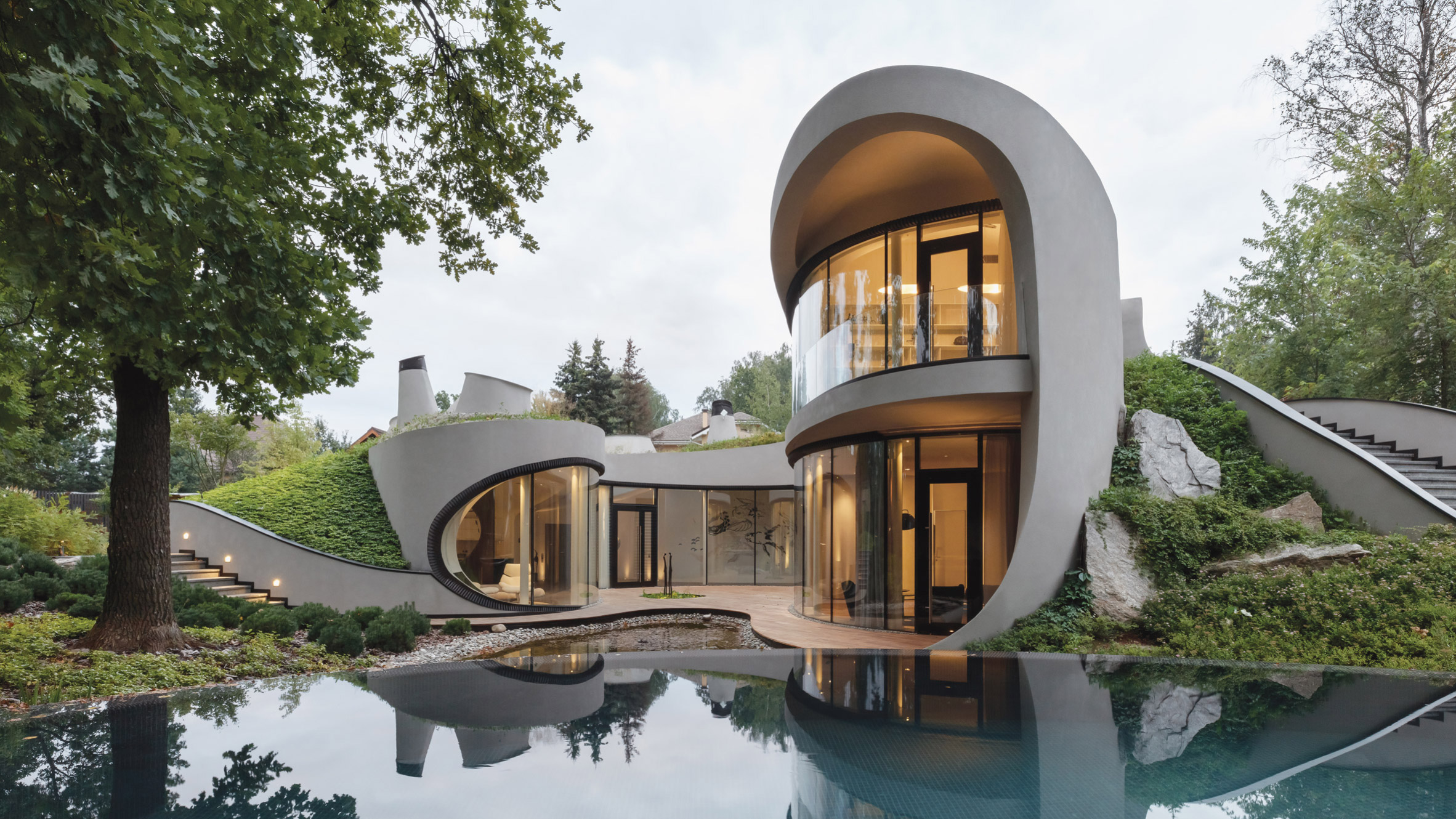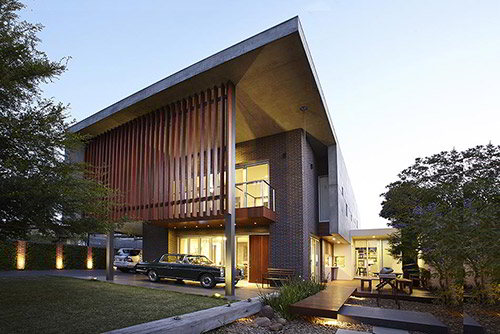Leading Fads in Residential Architecture You Ought To Know Concerning
As domestic design remains to progress, numerous engaging fads are forming the way we develop and occupy our space. Trick developments such as sustainable building techniques, the integration of wise home innovation, and the rise of modular homes underscore a substantial change towards both functionality and environmental responsibility. Additionally, concepts like open strategy living and biophilic layout are redefining our communication with room and nature. Recognizing these fads not just notifies style choices but also exposes wider ramifications for lifestyle and community - residential house architect. What might these innovations mean for the future of residential living?
Lasting Building Practices
An increasing variety of domestic projects are accepting sustainable structure practices, driven by an expanding understanding of environmental influence and energy efficiency. This change is characterized by the assimilation of green materials, energy-efficient layouts, and innovative building and construction methods. Homeowners and home builders are significantly prioritizing using renewable energies, such as bamboo and recycled steels, which not just decrease the carbon impact yet also improve the resilience and visual allure of buildings.
Incorporating energy-efficient systems is one more critical aspect of sustainable structure - residential house architect. Attributes such as high-performance insulation, energy-efficient windows, and solar panels are coming to be criterion in new domestic styles. These components not just add to lower energy consumption however likewise supply substantial lasting savings for house owners
Additionally, the format of lasting homes often emphasizes natural light and ventilation, decreasing the reliance on synthetic illumination and climate control systems. Landscaping practices, such as xeriscaping, further promote sustainability by minimizing water use.
As the need for lasting living options remains to increase, the domestic architecture industry is poised to adapt and innovate, guaranteeing that future homes are not only eco liable yet useful and additionally comfortable for their residents. - residential house architect
Smart Home Technology
Smart home modern technology is changing the means house owners communicate with their space, enhancing safety and security, convenience, and power management. This ingenious approach incorporates different tools and systems, enabling users to manage their homes remotely or with automated processes. Central to this pattern is using wise tools such as thermostats, illumination, protection video cameras, and devices, all attached through the Net of Things (IoT)
One of one of the most appealing functions of clever home technology is the capability to tailor settings for ideal power performance. Property owners can keep an eye on power use and adjust home heating, air conditioning, and lights based on their routines, dramatically reducing utility costs. Innovative safety and security systems outfitted with wise locks and security video cameras provide peace of mind, allowing remote surveillance and signals to potential safety and security breaches.
Integration with voice-activated aides boosts individual experience, enabling property owners to control tools with straightforward voice commands. As modern technology proceeds to develop, the potential for clever home systems to enhance high quality of life expands, making them a vital consideration in modern household design. Ultimately, clever home innovation is not merely a fad however a fundamental change toward extra intelligent living environments.
Open Principle Living
Open principle living has become a defining attribute in contemporary residential design, characterized by the elimination of conventional obstacles between rooms. This design approach promotes fluidness and connectivity within the home, permitting a smooth shift in between areas such as the kitchen area, eating, and living rooms. By removing walls and dividers, open idea formats create a feeling of space, fostering an inviting ambience that enhances social interaction.

Moreover, this technique to household design lines up with minimalism, concentrating on useful simplicity and aesthetic coherence. Home owners value the versatility of these designs, which can be conveniently adjusted to mirror individual style through furniture plan and decoration. As open principle living proceeds to gain traction, it remains a testament to developing household characteristics and the need for homes that boost link and convenience.
Biophilic Layout
Biophilic layout has actually become progressively considerable in property style, stressing the inherent link in between people and nature. This style viewpoint seeks to integrate natural environments into living spaces, thus promoting a sense of health and boosting the top quality of life for owners. By including attributes such as all-natural light, plants, and organic materials, biophilic style promotes an unified partnership in between indoor atmospheres and the environment.
Trick aspects of biophilic style include big windows that offer unobstructed sights of exterior landscapes, living wall surfaces that introduce plant right into interiors, and open layout that encourage airflow and all-natural light penetration. Water attributes, both inside and outside the home, offer to produce relaxing atmospheres and enhance sensory experiences.
In addition, the use of sustainable products This Site not only sustains environmental stewardship however also adds to much healthier interior air high quality. As awareness of ecological issues boosts, property owners are significantly prioritizing layouts that reflect click for more info their link to nature. Essentially, biophilic style not just elevates visual appeal however additionally addresses psychological and mental demands, making it an important fad in modern domestic style.
Modular and Prefab Homes

Moreover, prefab and modular homes are made with sustainability in mind. Lots of suppliers make use of energy-efficient systems and green materials, such as solar panels and advanced insulation strategies, adding to decreased energy consumption and reduced energy bills for homeowners. The adaptability of style options allows for modification, dealing with diverse visual preferences and useful demands.
As the demand for economical housing remains to rise, prefab and modular homes present a sensible option, dealing with both financial and environmental obstacles. Neighborhoods are significantly acknowledging look here the possibility of these structures, incorporating them into rural and city settings. On the whole, the trend towards modular and prefab homes symbolizes a change toward more sustainable, reliable, and adaptable living atmospheres, making them a pivotal element of modern domestic style.
Conclusion
Lasting structure methods and smart home modern technologies boost effectiveness and convenience, while open principle living and biophilic style foster social interaction and a link to nature. The increase of modular and prefab homes supplies adjustable and budget-friendly services, mirroring a wider shift in the direction of functional and accountable living.
Key growths such as sustainable structure methods, the assimilation of wise home modern technology, and the increase of modular homes underscore a considerable change towards both capability and environmental duty.The rise of prefab and modular homes has transformed the household design landscape, supplying ingenious remedies for efficient and sustainable living.In addition, modular and prefab homes are created with sustainability in mind. Overall, the pattern towards modular and prefab homes represents a change towards more sustainable, reliable, and adaptable living atmospheres, making them a crucial aspect of contemporary property style.
Lasting building practices and wise home modern technologies boost efficiency and comfort, while open idea living and biophilic design foster social interaction and a connection to nature.